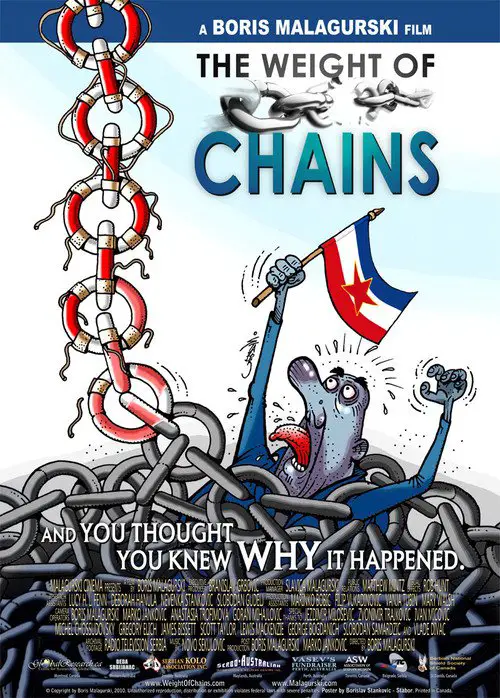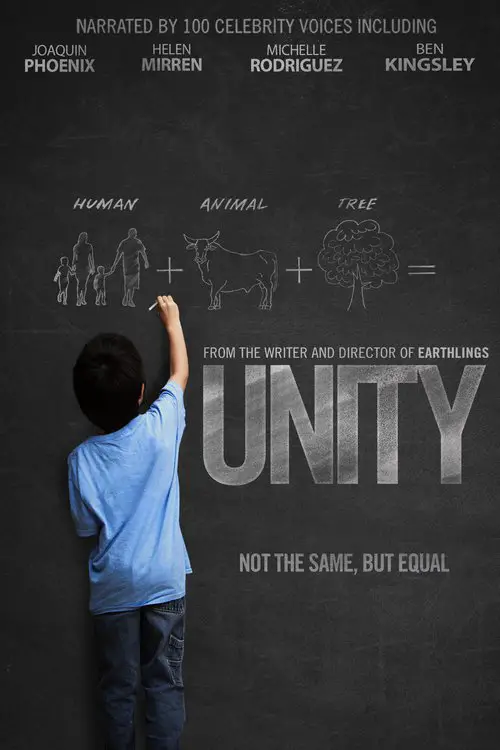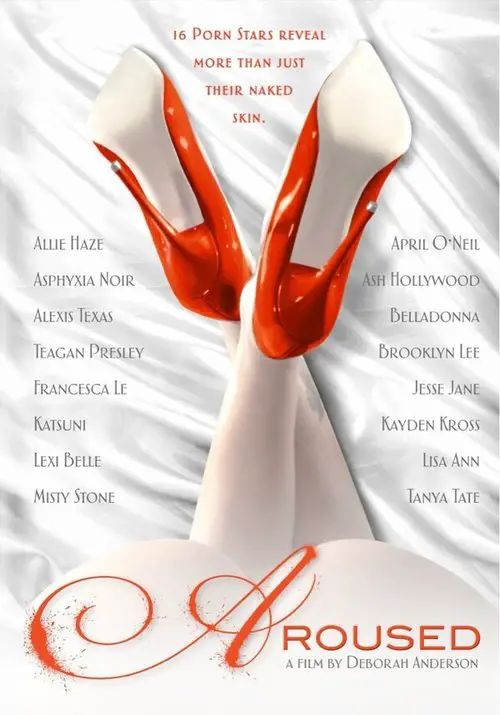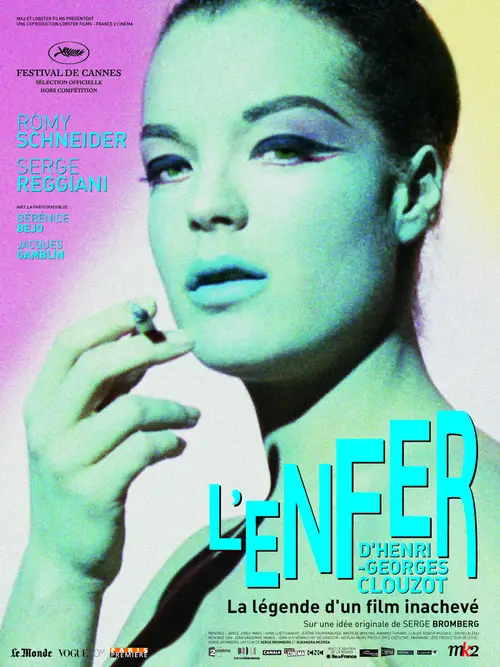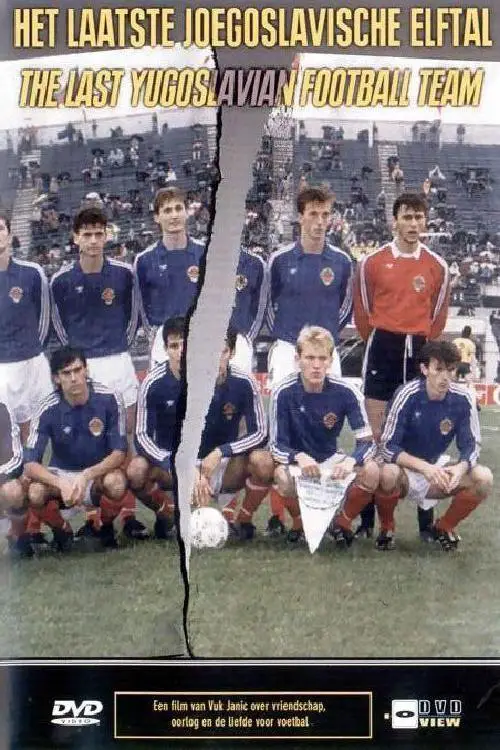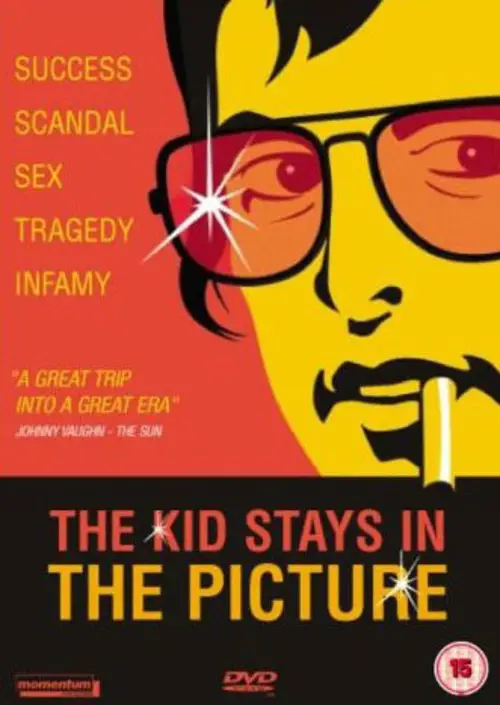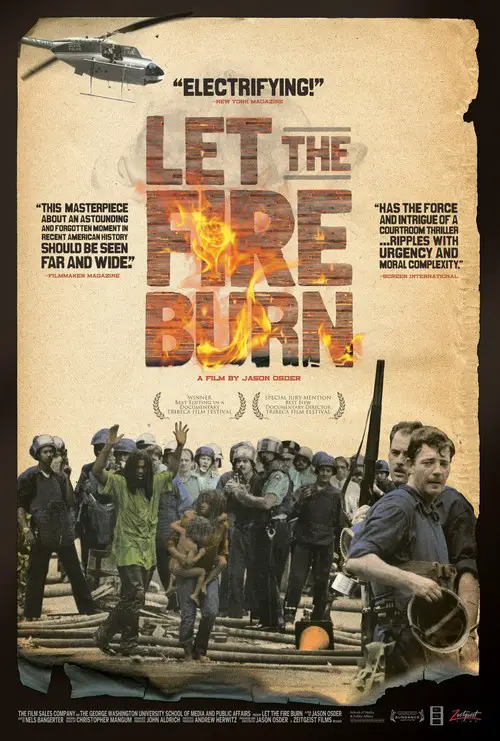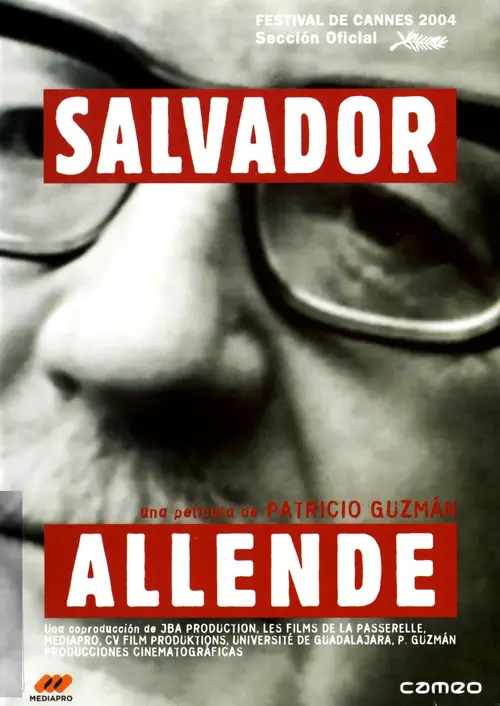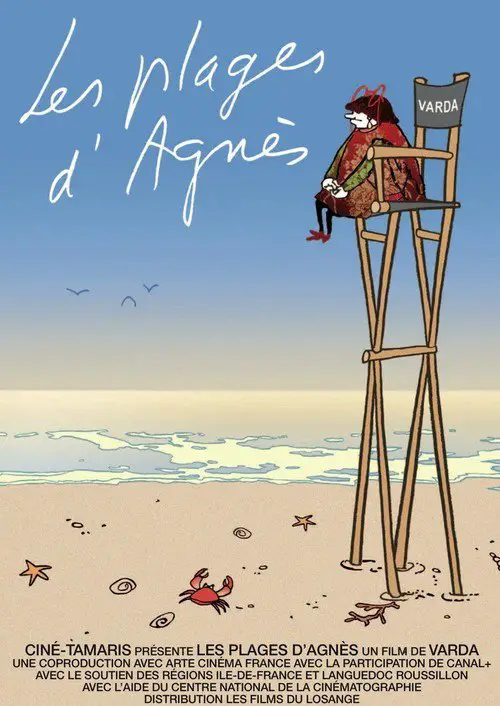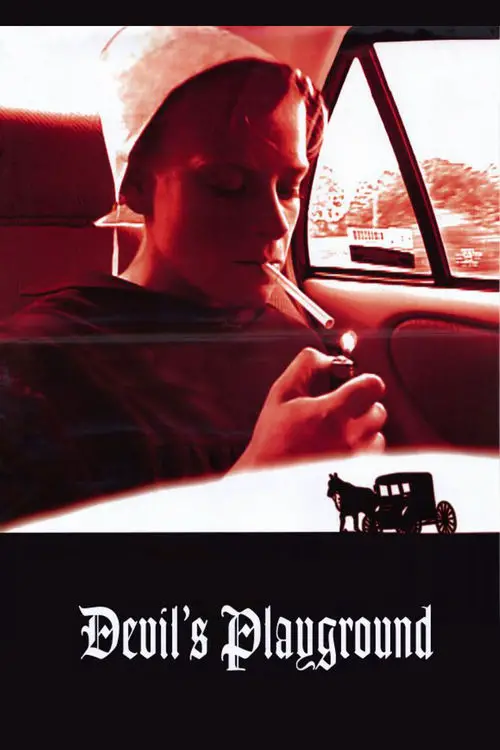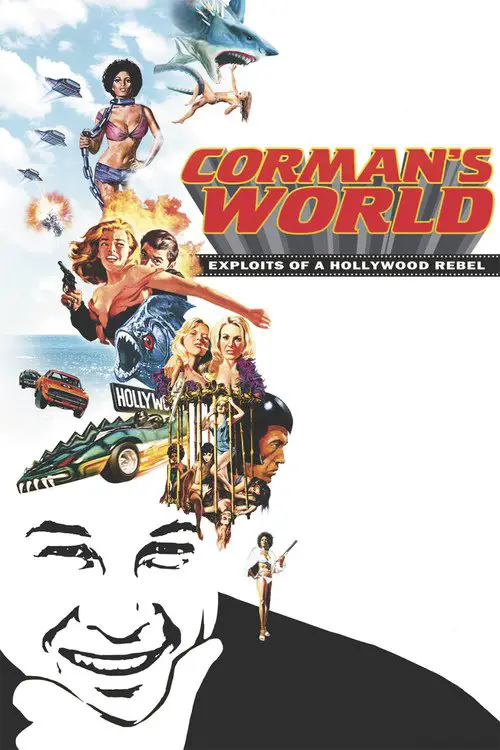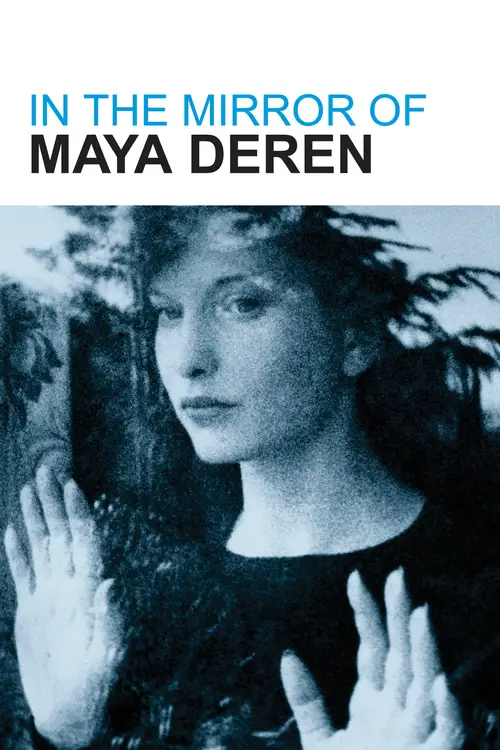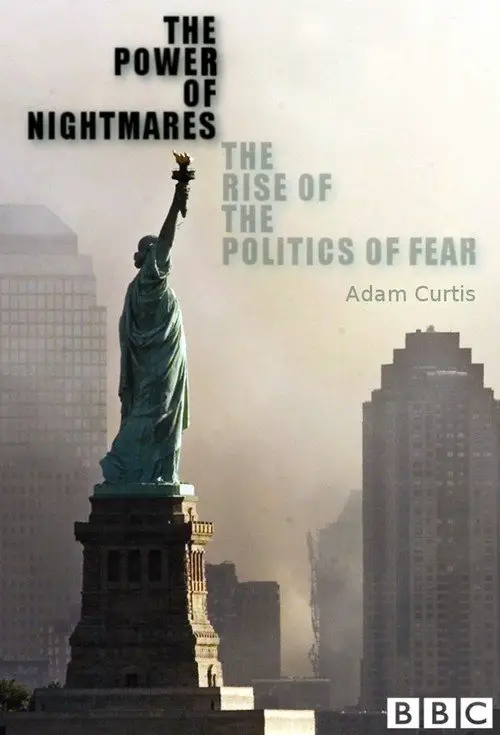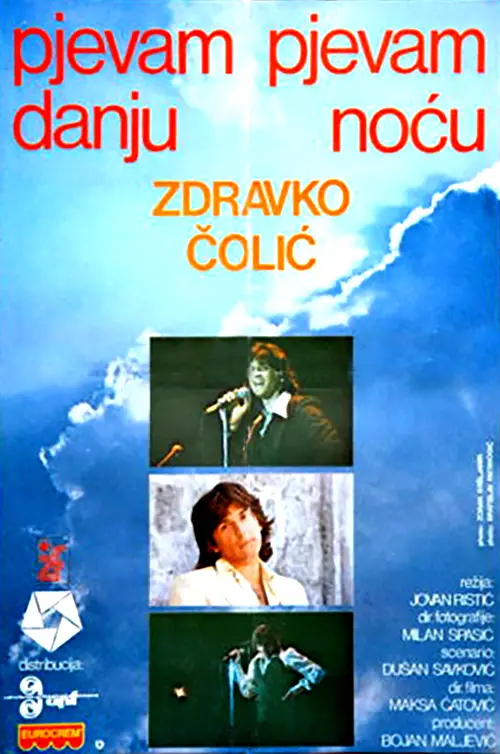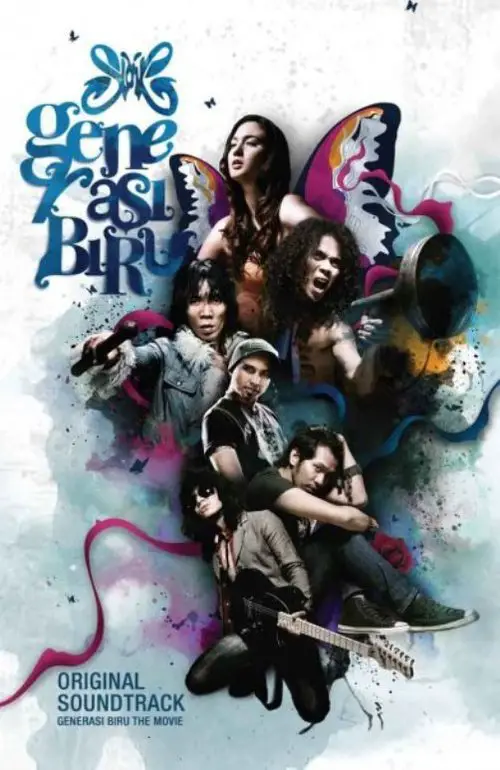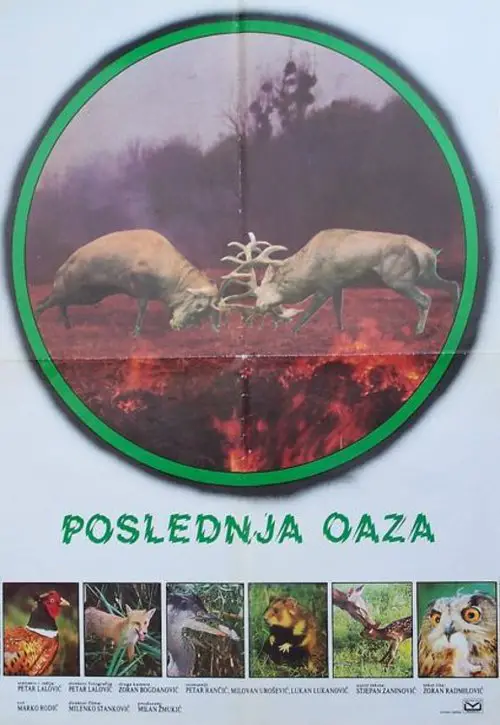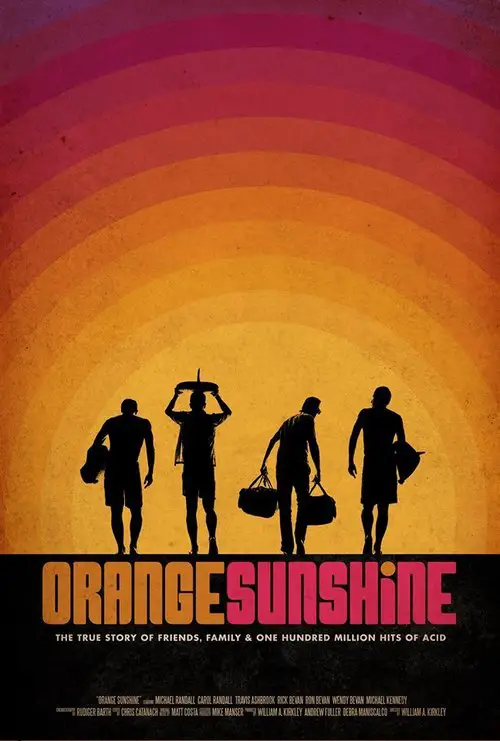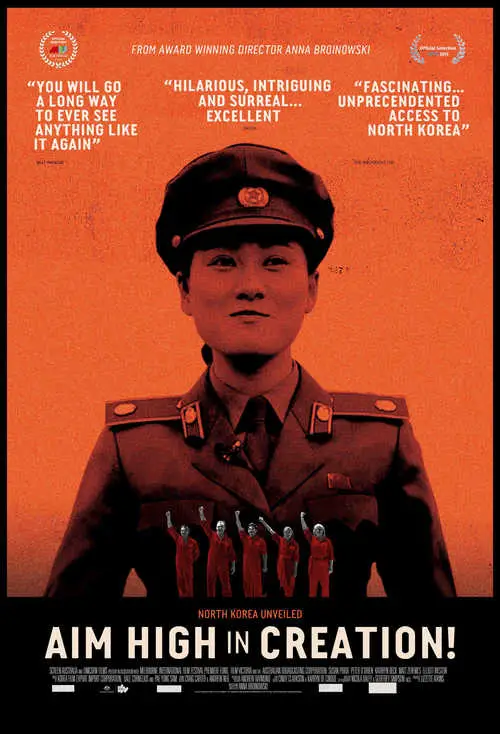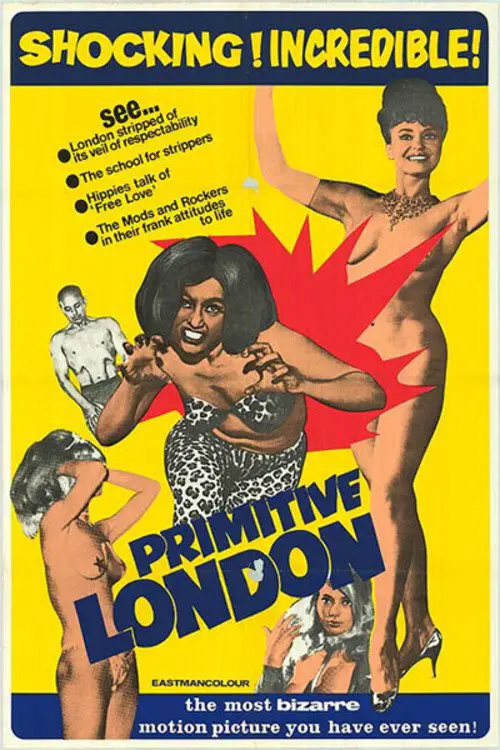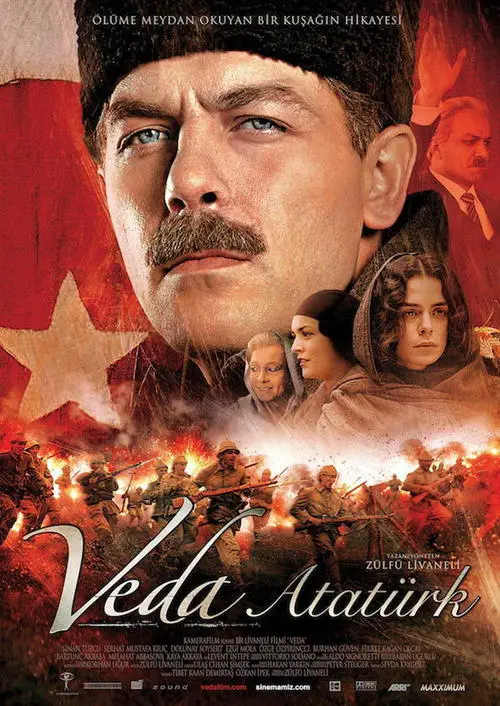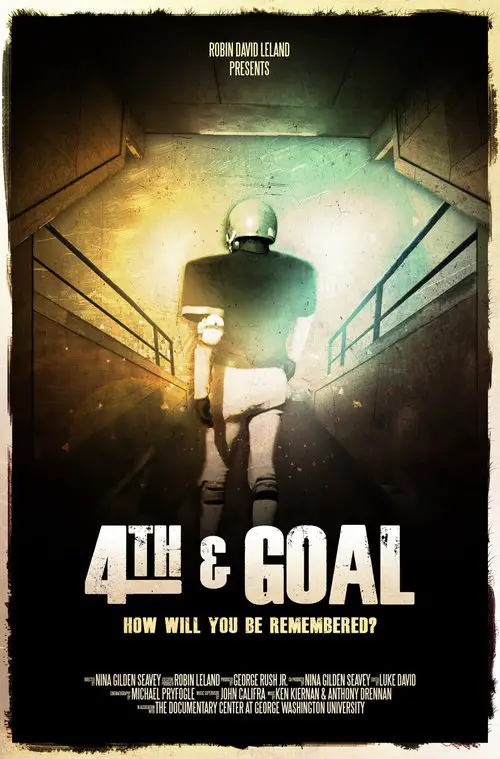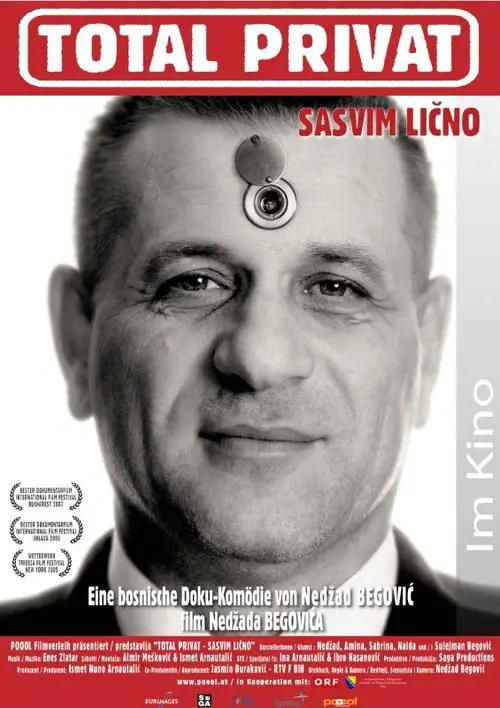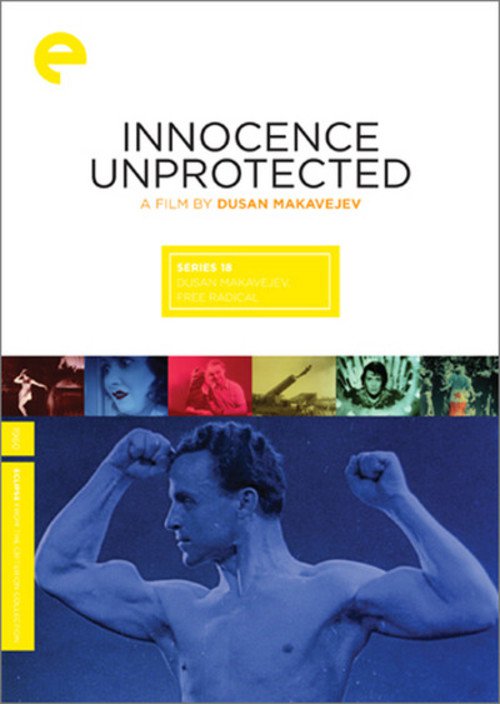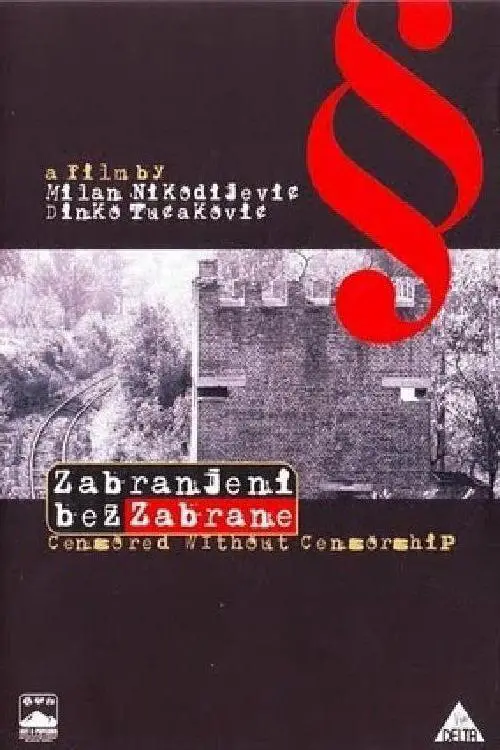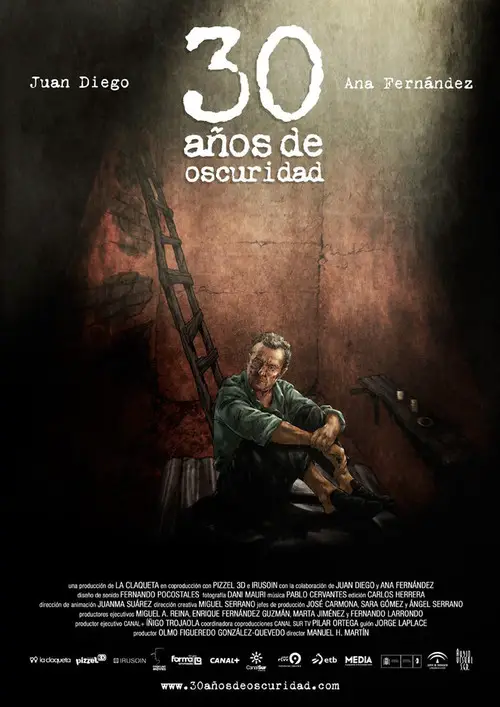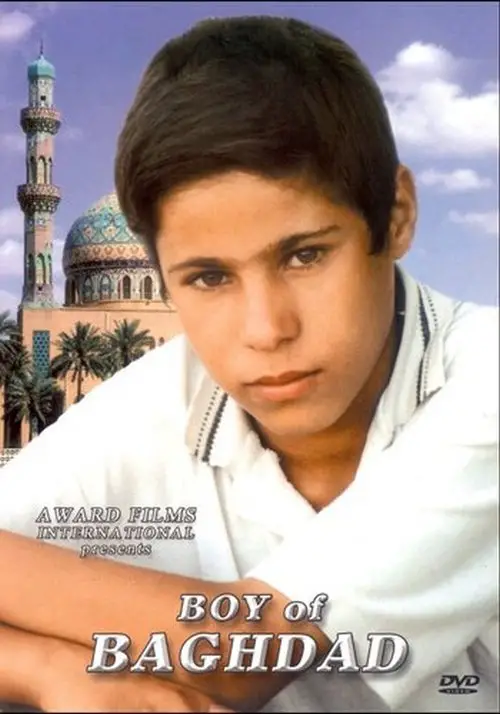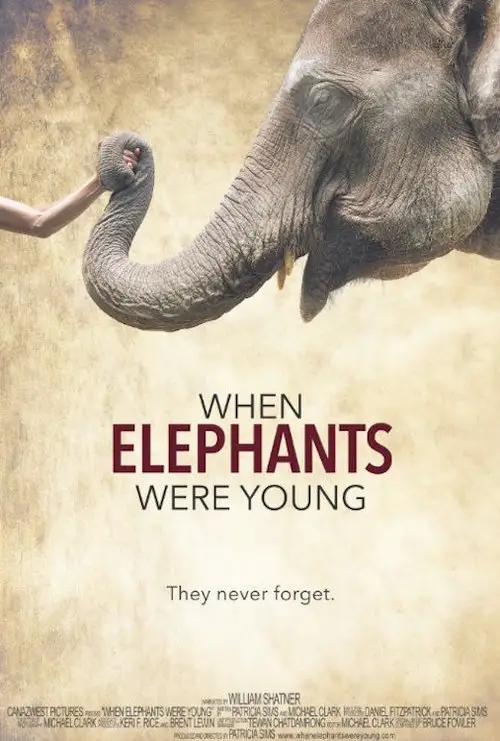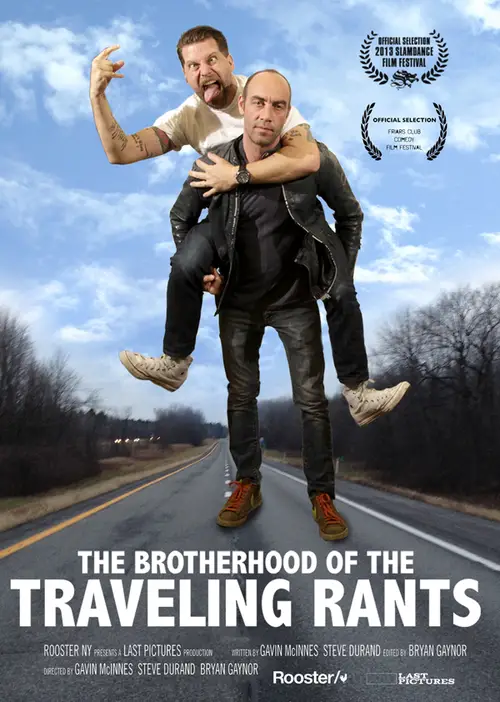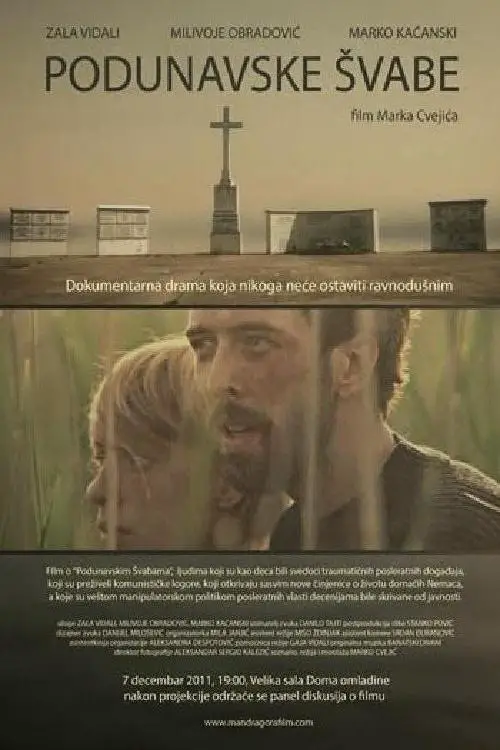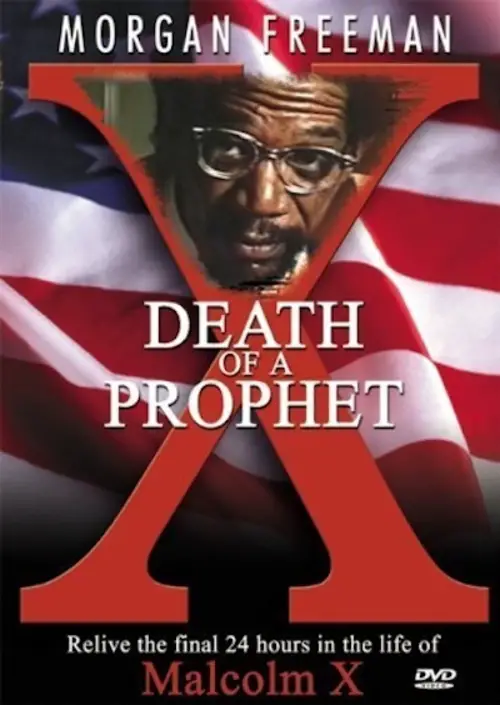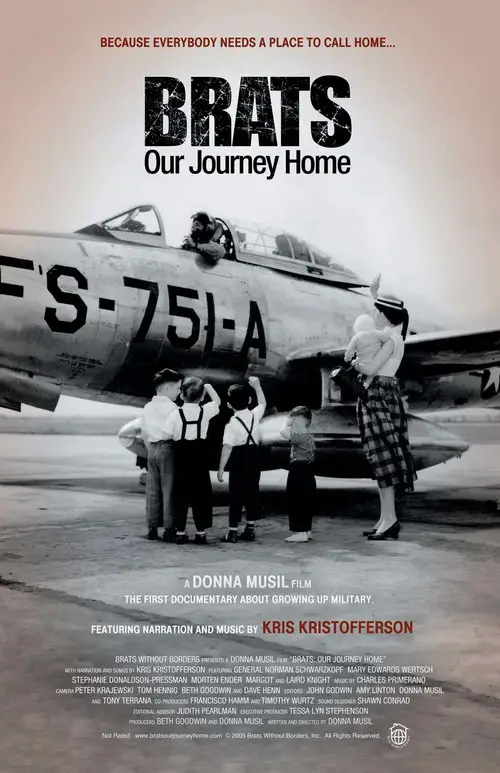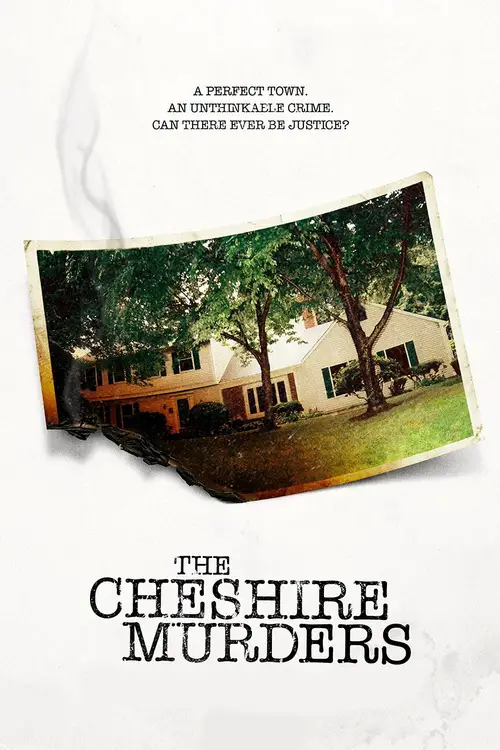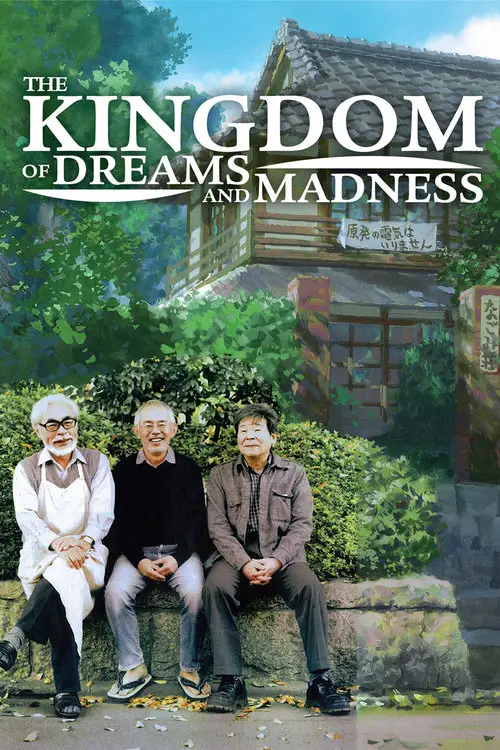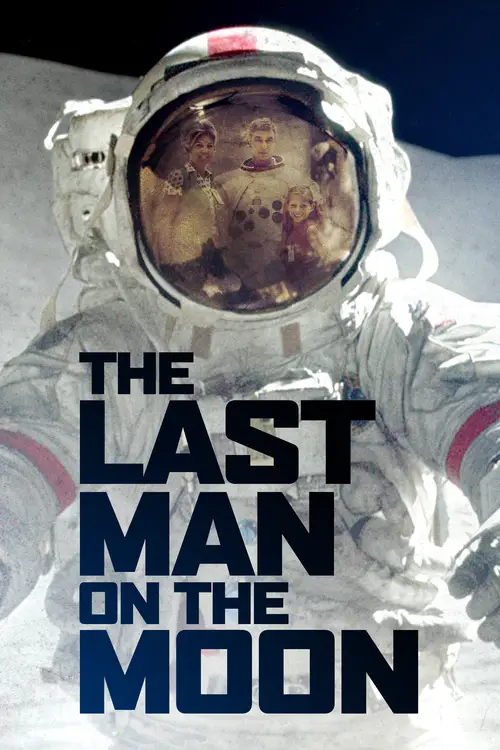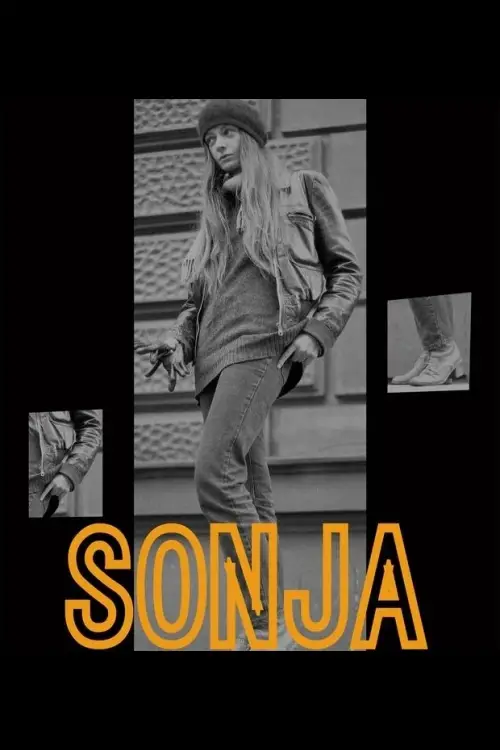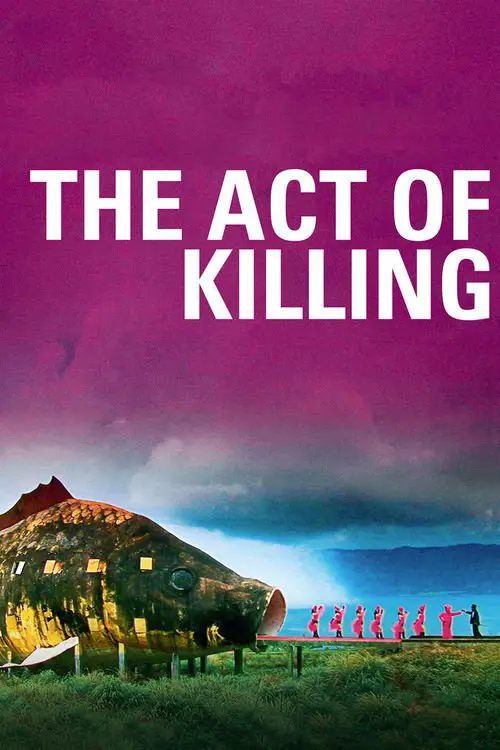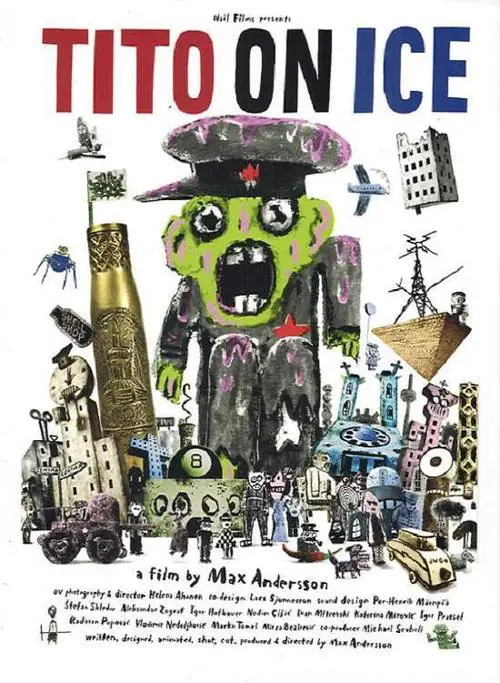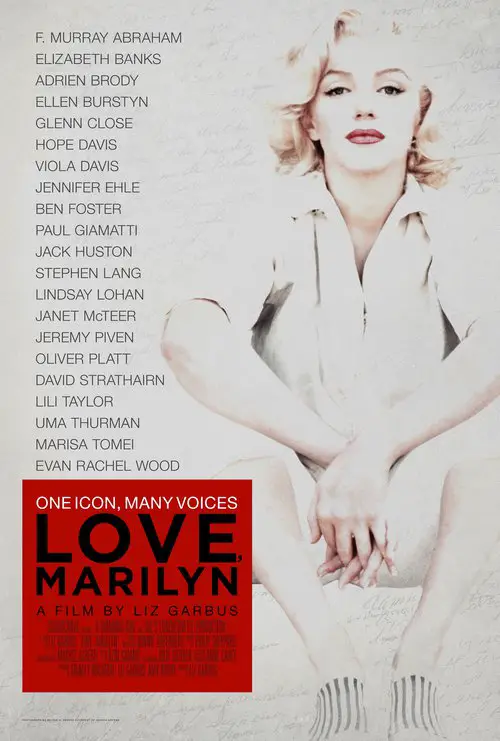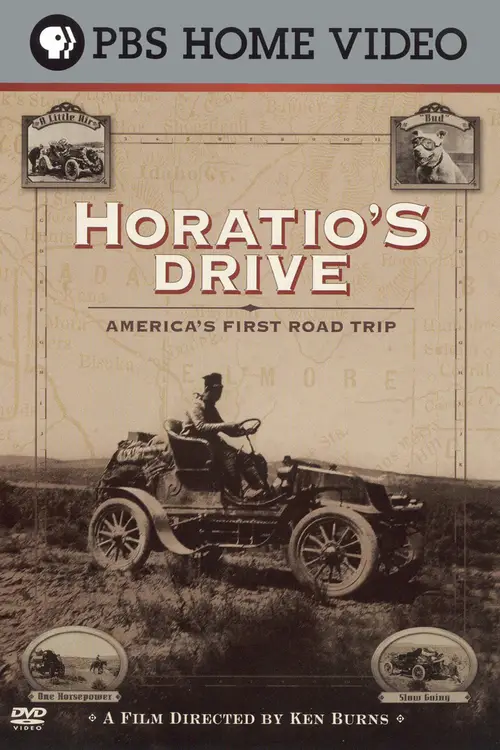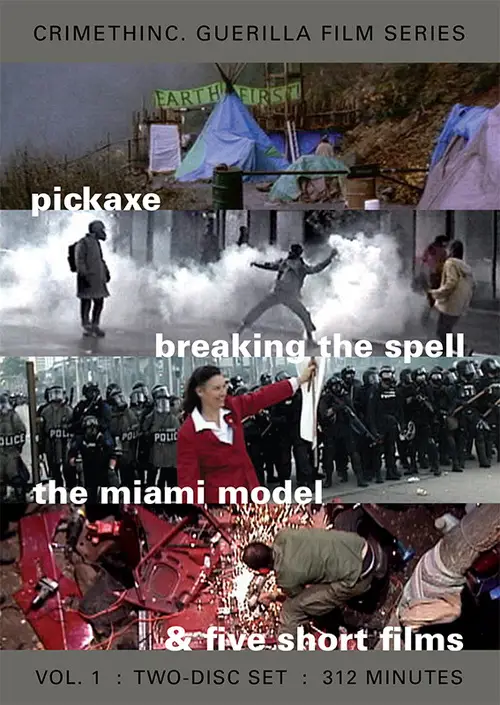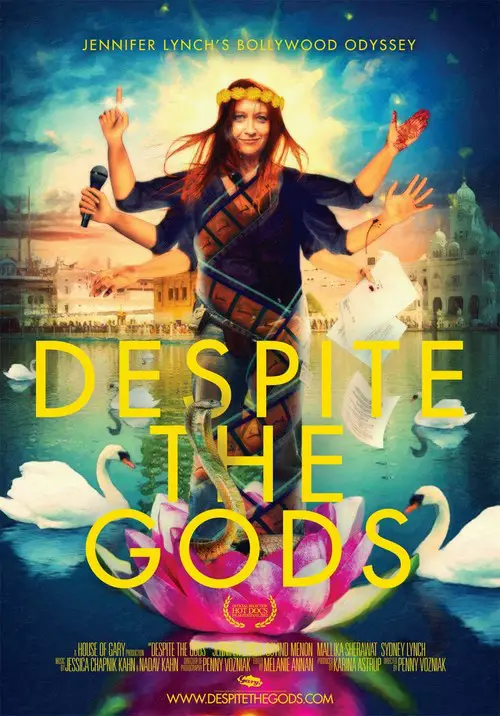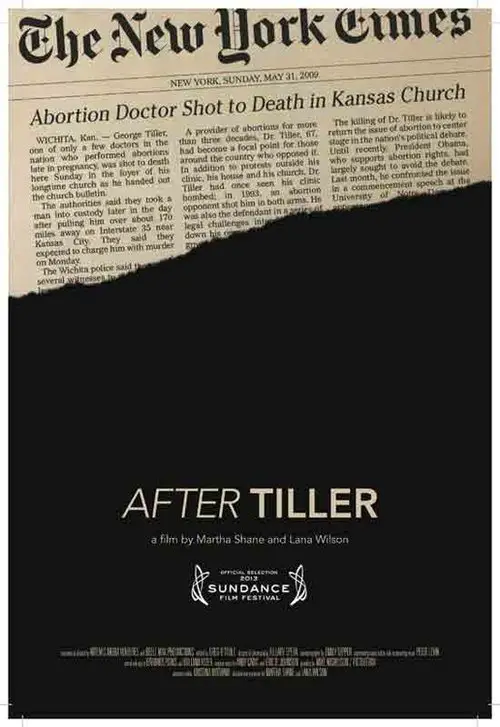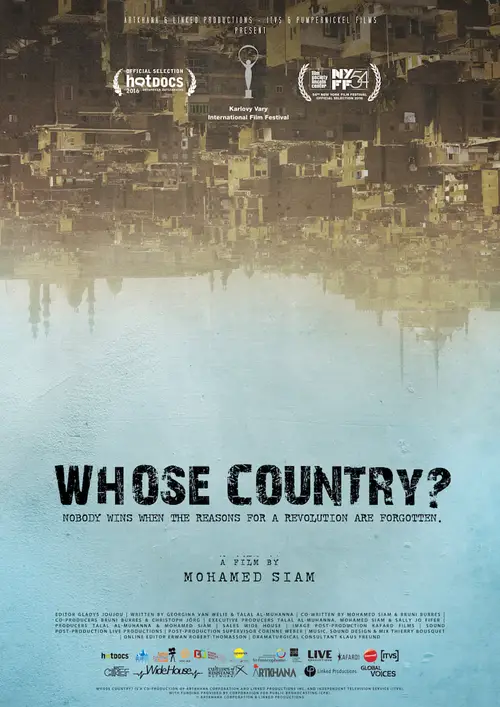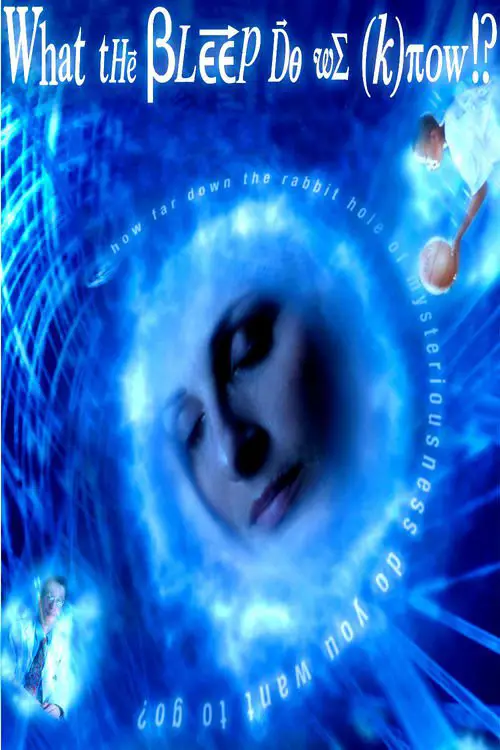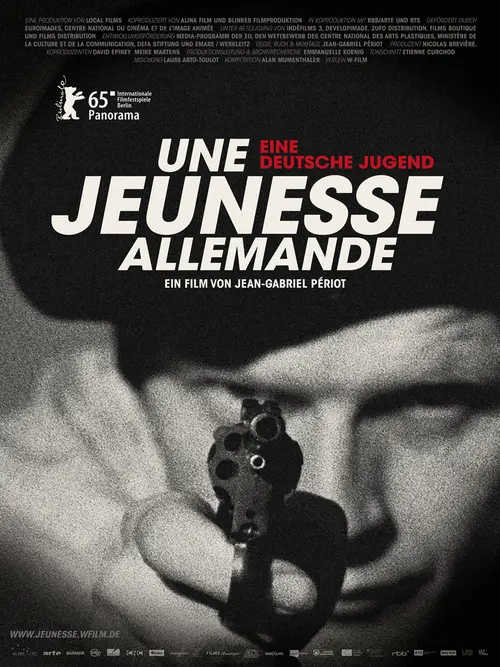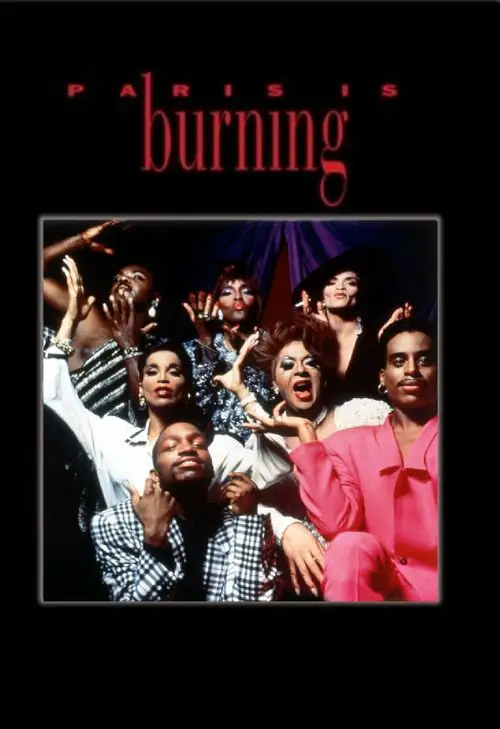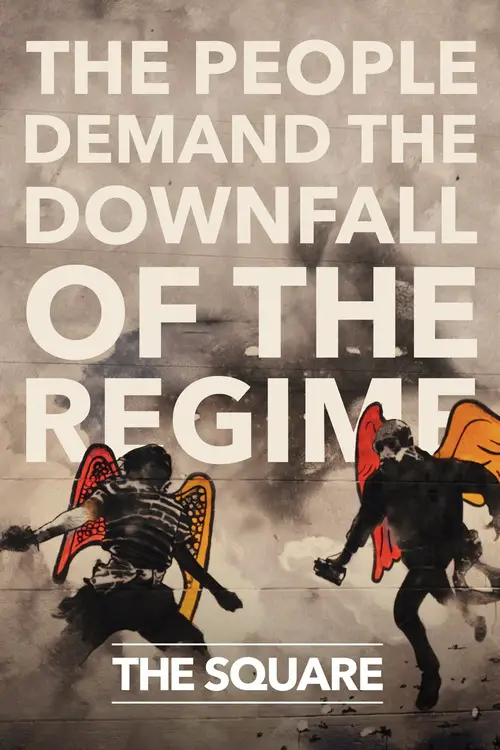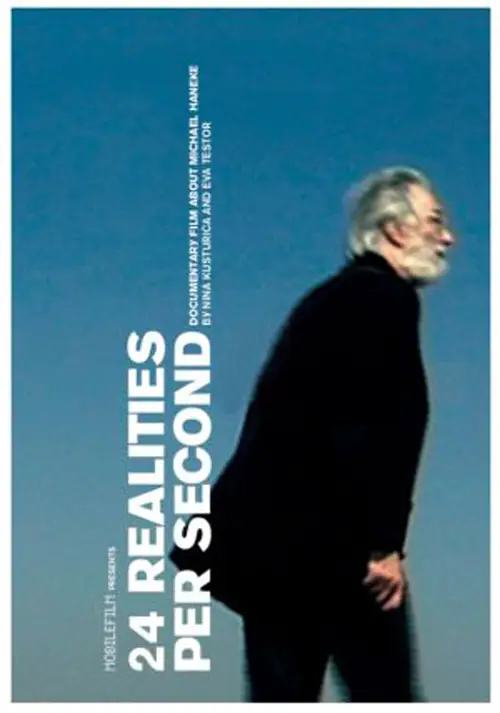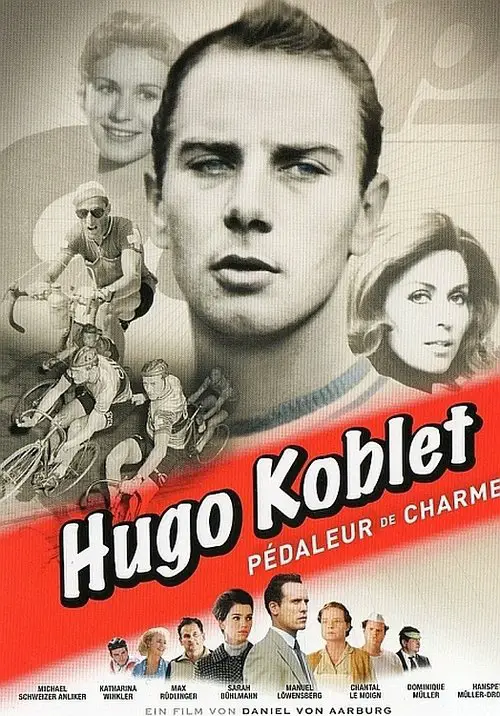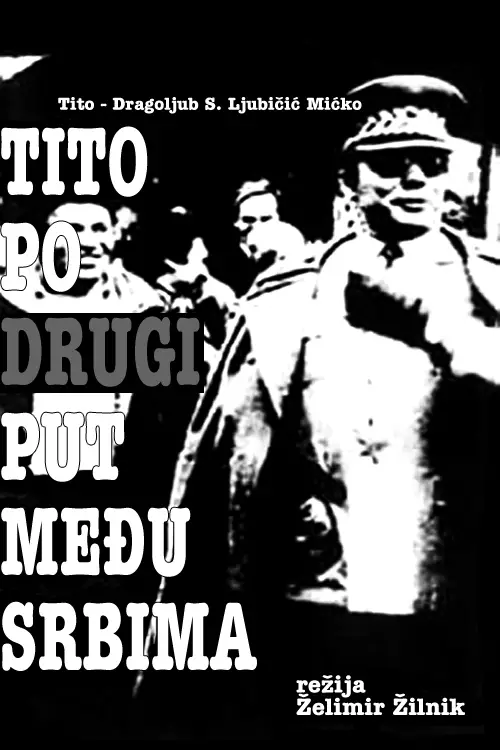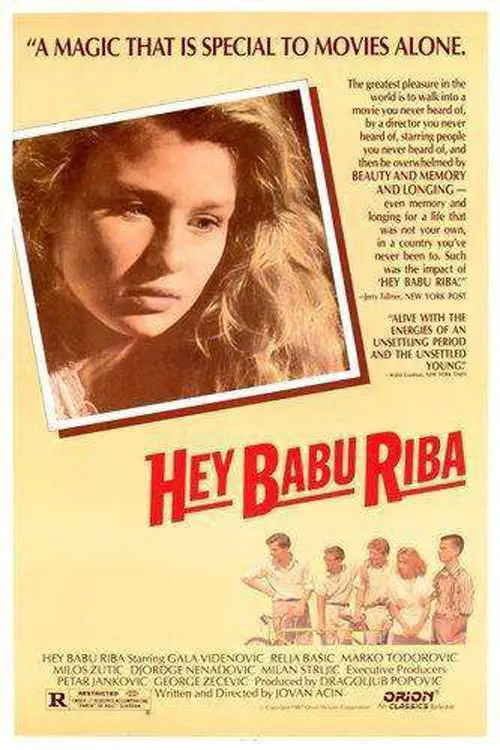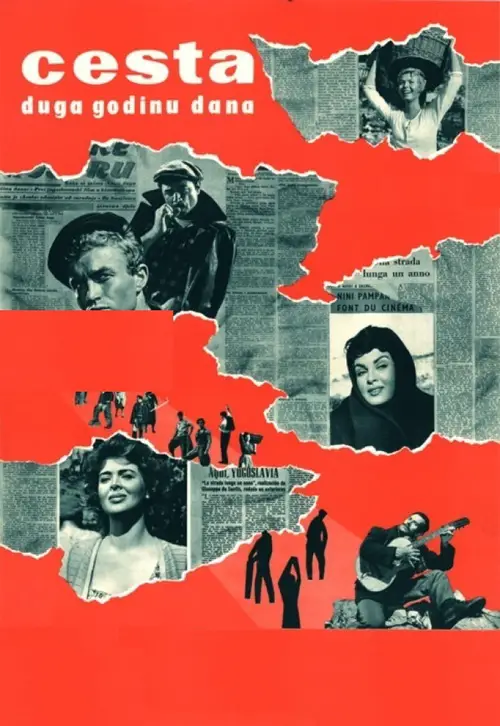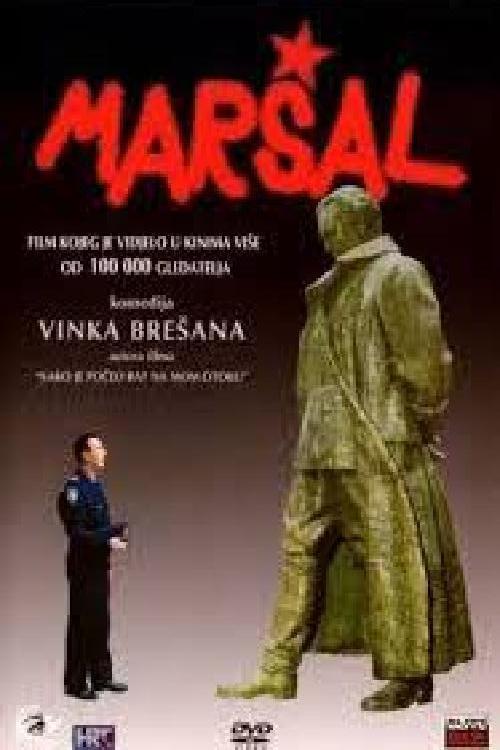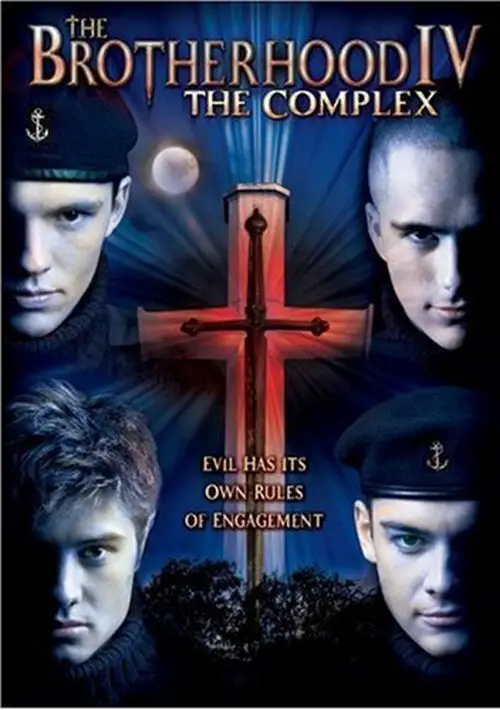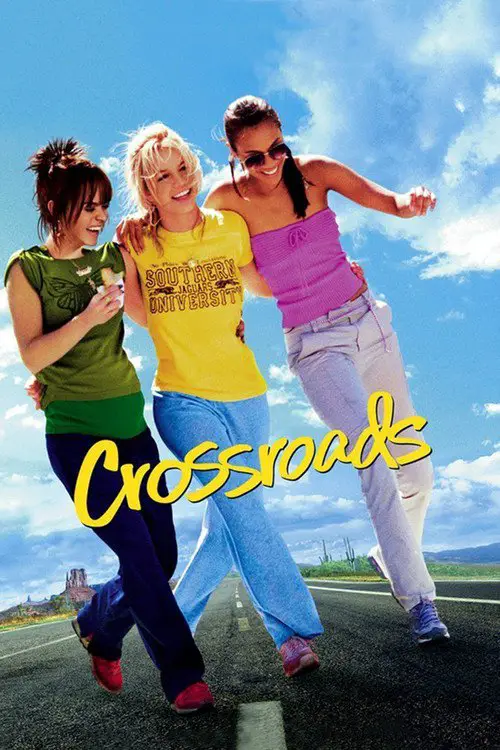The Road of Fraternity and Unity (1999)

Similar movies
The Weight of Chains is a Canadian documentary film that takes a critical look at the role that the US, NATO and the EU played in the tragic breakup of a once peaceful and prosperous European state - Yugoslavia. The film, bursting with rare stock footage never before seen by Western audiences, is a creative first-hand look at why the West intervened in the Yugoslav conflict, with an impressive roster of interviews with academics, diplomats, media personalities and ordinary citizens of the former Yugoslav republics. This film also presents positive stories from the Yugoslav wars - people helping each other regardless of their ethnic background, stories of bravery and self-sacrifice.
Get up close and personal with 16 of the most successful women in the adult film industry as they shed their clothes for an intimate photo shoot with director Deborah Anderson. As questions are asked, personal stories about their lives are revealed, from why they chose the business of sex to how they got into it in the first place. These porn stars have always been discreet about their private lives in the past, yet Anderson has a way of opening up a dialog allowing them to share more than just their naked skin on screen. Their true inner vulnerability is touching, yet the characters they have created are confident and intoxicating. Once you hear their stories, you'll never look at them in the same way again.
This documentary about Henri-Georges Clouzotâs unfinished 1964 psycho-thriller LâEnfer is as tantalizing as it is frustrating. Despite remaining one of the most masterful of French directors, Cluozot inexplicably seems to have lost control on the big-budget production of LâEnfer. The long-lost raw footage is intriguing and dazzling, infused with swirling lights and blue-lipped, cigarette-puffing fantasy temptresses. Although directors Serge Bromberg and Ruxandra Mederea have managed to speak to numerous members of the original crew, this behind-the-scenes investigation has so little to say about the reasons behind Clouzotâs failure to complete the film. In spite of this, the undiminished power of Clouzotâs extraordinary images makes the documentary a fascinating watch.
They were called âthe golden generationâ, the young Yugoslavian soccer players who won the Junior World Soccer Championships in 1987 in Chile. They became world-famous and today play in Rome, Milan and Madrid. But the country they represented in Chile no longer exists. Director Vuk Janic talks with soccer heroes like Zvonimir Boban and Sinisa Mihajlovic and visits the neighbourhoods they grew up in. Via the soccer, he tells the story of the disintegration of his country. The supporter riots in 1990 during the match between Red Star Belgrade and Dinamo Zagreb heralded the imminent war. Shortly after, the team fell apart. Seven years later, as national players of Croatia and little Yugoslavia, they compete in two charged qualification matches for the 2000 European Championships. Soccer is not war, but the war is never far away. The first match in Belgrade has to be cancelled due to NATO bombings, and the two national hymns are drowned in deafening whistles from the audience.
Jason Osder makes an impressive feature film debut through his unbiased and thorough account of the incidents leading up to and during the 1985 standoff between the extremist African-American organization MOVE and Philadelphia authorities. The dramatic clash claimed eleven lives and literally and figuratively devastated an entire community. Let the Fire Burn is a real-life Wild West story absent the luxury of identifying its heroes by the color of their hats.
A leftist revolutionary or a reformist democrat? A committed Marxist or a constitutionalist politician? An ethical and moral man or, as Richard Nixon called him, a "son of a bitch"? In SALVADOR ALLENDE, acclaimed Chilean filmmaker Patricio Guzmán (The Battle of Chile and Chile, Obstinate Memory) returns to his native country thirty years after the 1973 military coup that overthrew Chile's Popular Unity government to examine the life of its leader, Salvador Allende, both as a politician and a man.
Filmmaking icon Agnès Varda, the award-winning director regarded by many as the grandmother of the French new wave, turns the camera on herself with this unique autobiographical documentary. Composed of film excerpts and elaborate dramatic re-creations, Varda's self-portrait recounts the highs and lows of her professional career, the many friendships that affected her life and her longtime marriage to cinematic giant Jacques Demy.
The Devil's Playground is a fascinating and moving documentary about a little-known aspect of Amish life. Amish are not permitted to join the church until their late teens, and have to do so of their own volition. The film explores Rumspringa, wherein young Amish are given the opportunity to explore the "English" way of life.
Slank is a legendary rock band on the Indonesian scene, known for their politicized lyrics and activism, and for its fanatical fan base - known as "Slankers" - who see the band as something to coalesce around to promote peace and unity in their country. 'The Blue Generation' uniquely combines dance sequences, footage of live performances, interviews, and animations about Indonesia's political history in a gloriously energetic and inspiring manner.
The never-before-told story of the Brotherhood of Eternal Love â a spiritual group of surfers and hippies in Southern California that became the largest suppliers of psychedelic drugs in the world during the 1960s and early 1970s. Bonded by their dreams to fight social injustice and spread peace, this unlikely band of free-spirited idealists quickly transformed into a drug-smuggling empire and at the same time inadvertently invented the modern illegal drug trade. At the head of the Brotherhood, and the heart of this story, is the anti-capitalistic husband and wife team, who made it their mission to change the world through LSD.
A revolutionary film about the cinematic genius of North Korea's late Dear Leader Kim Jung-IL, with a groundbreaking experiment at its heart - a propaganda film, made according to the rules of his 1987 manifesto. Through the shared love of cinema, AIM HIGH IN CREATION! forges an astonishing new bond between the hidden filmmakers of North Korea and their Free World collaborators. Revealing an unexpected truth about the most isolated nation on earth: filmmakers, no matter where they live, are family.
The sensational follow-up to "London in the Raw," "Primitive London" sets out to reflect society's decay through a sideshow spectacle of 1960s London depravityâand manages to outdo its predecessor. Here, we confront mods, rockers and beatniks at the Ace Café, cut some rug with obscure beat band The Zephyrs, smirk at flabby men in the sauna and goggle at sordid wife-swapping parties as we discover a pre-permissive Britain still trying to move on from the post-war depression of the 1950s.
A friendship started in childhood in Thessaloniki firstly turned into being comrade in arms and then a half-century brotherhood and fraternity following the same ideals until the death upon proclamation of the Republic; Ataturk & Salih Bozok Veda Ataturk (The Farewell Ataturk) is the story of a brotherhood, portrayal of milestones in Ataturk's life and the story of a commander commanding a generation that challenged the death to save the homeland.
4TH & GOAL is the epic tale of six young men in their quest to join the most elite club in professional athletics: the NFL.
Shot over six years, we first meet Deqawn, Albert, Gibril, Tim, Randy, and Bret at the famed junior college football program at City College in San Francisco. We follow them through the 2003 championship season to the top D1 collegiate teams in the nation and into their encounter with world of professional football.
What their individual fates reveal is as much a prophetic tale of brotherhood, family and the harsh realities of growing up as it is about excelling on 100 yards of turf.
Through the conversation with Yugoslav film authors and excepts from their films, this documentary tells a story of a film phenomenon and censorship, and its focus is, in fact, a painful epoch of Yugoslav film called "Black Wave". The film tells a great «thriller» story of the ideological madness which characterized the totalitarian psychology.
When the Spanish Civil War came to an end, Manuel Cortes was unable to flee the country. After a long journey, he managed to get back home in the dark without being discovered. His wife, Juliana, told him how the winning forces were shooting many of their fellow citizens. Manuel and Juliana decided to dig a small hole in the wall for Manuel to hide in. He could not even begin to imagine that this small hideaway was to become his private jail for the following 30 years. This is the story of the so-called post-war moles, people who had to put their lives on hold in order to escape from the repression imposed by the victors of the civil war.
Using an embedded Iraqi camera crew, AFI has delivered an unprecedented look at life inside post-war Iraq, all from the unique perspective of a precocious twelve-year-old boy. Doe-eyed and adorable Kheer Allah lives with his mother, father, two brothers and sister. Their "home" has no furniture and no modern appliances, except for an old television and radio sitting precariously atop a stack of used tires. There's no meat on this family's table. Home-baked pita bread is the staple in this beyond-poor household. School is out of the question too. Young Kheer Allah must work every day to help his family survive. This daily struggle forms the heart of this remarkable film. Through the wind-swept and war-ravaged streets of his neighborhood, Kheer Allah parlays his abundant charm into a variety of odd jobs that bring little money, but much satisfaction to his ever-smiling face.
When an author decides to turn his book tour into a stand-up comedy tour, he enlists his best friend from high school to come along. They havenât seen each other in 20 years but quickly fall into their old habits of outrageous behavior. As the tour progresses however our heroes learn theyâre not kids anymore and what started out as mere hijinx is now endangering their friendship, their careers, and their lives.
A docudrama about The Danube Swabians, descendants of the youngest German tribes who, moved to the territory of Vojvodina in the 18th century looking for a better life. The story follows their destiny from the very beginnings of their settlement in this region, through their situation during the WW2 and to the present time. The film tells the story of Maria, a girl who is a descendant of The Danube Swabians. She comes to Vojvodina to find the old house of her grandfather, who was exiled after the War. There she meets a local guy named Misha who helps her in her journey. Together they travel throughout Vojvodina meeting witnesses of traumatic post-war events who have survived the communist camps. During their adventure, they discover completely new facts about The Danube Swabians that have been hidden from the public for decades.
After breaking ties with the Nation of Islam, Malcolm X became a man marked for death...and it was just a matter of time before his enemies closed in. Despite death threats and intimidation, Malcolm marched on - continuing to spread the word of equality and brotherhood right up until the moment of his brutal and untimely assassination. Highlighted by newsreel footage and interviews, this is the story of the last twenty-four hours of Malcolm X. Featuring the music of jazz percussionist Max Roach.
American military "brats" of all ethnicities share intimate memories about their strange, but interesting childhoods - growing up on military bases around the world, then struggling to fit into an America with which they have little in common, but for whom they sacrificed their youths. Narrated by Kris Kristofferson. Featuring songs by Kris Kristofferson, interviews with General H. Norman Schwarzkopf, and never-before-seen archival footage from post-war Germany and Japan.
In the early-morning hours of July 23, 2007, in Cheshire, Conn., ex-convicts Steven Hayes and Joshua Komisarjevsky broke into the family home of Dr. William Petit, his wife, Jennifer Hawke-Petit, and their daughters, Michaela, 11, and Hayley, 17. Dr. Petit was beaten and tied to a pole in the basement. The three women were bound in their bedrooms while the men ransacked the house. The brutal ordeal continued throughout the morning, ending with rape, arson and a horrific triple homicide.
The 1960s was an extraordinary time for the United States. Unburdened by post-war reparations, Americans were preoccupied with other developments like NASA, the game-changing space programme that put Neil Armstrong on the moon. Yet it was astronauts like Eugene Cernan who paved the uneven, perilous path to lunar exploration. A test pilot who lived to court danger, he was recruited along with 14 other men in a secretive process that saw them become the closest of friends and adversaries. In this intensely competitive environment, Cernan was one of only three men who was sent twice to the moon, with his second trip also being NASAâs final lunar mission. As he looks back at what he loved and lost during the eight years in Houston, an incomparably eventful life emerges into view. Director Mark Craig crafts a quietly epic biography that combines the rare insight of the surviving former astronauts with archival footage and otherworldly moonscapes.
This documentary was inspired by the artistic life of Serbian actress Sonja SaviÄ. Being a wonder child, a star of Yugoslavian cinematography, a sex symbol, and urban legend of the eighties generation, a fighter against establishment, Sonja SaviÄ had always attracted attention. Simply put, she always looked, spoke and thought differently from others, she was entirely autonomous, an authentic phenomenon of Serbian culture. In the documentary SONJA, friends and colleagues of Sonja SaviÄ testify on many aspects of her life and work, and a special emphasis is put on Sonjaâs libertarian, rebellious, Don Quixote type of nature.
In a place where killers are celebrated as heroes, these filmmakers challenge unrepentant death-squad leaders to dramatize their role in genocide. The result is a surreal, cinematic journey, not only into the memories and imaginations of mass murderers, but also into a frighteningly banal regime of corruption and impunity.
To promote their book Bosnian Flat Dog, Swedish comics creators Max Andersson and Lars Sjunnesson tour the countries of former Yugoslavia with a mummified Marshal Tito in a refrigerator. They encounter a number of artists, musicians, publishers and other characters populating the post-Yugoslav indie cultural scene. As the journey continues through increasingly improbable surroundings, the protagonists begin to question themselves and the reality they find themselves in. Watching border controls turn into improvised snapshot sessions, admiring mutant iron-curtain Disney toys, buying souvenir grenade shell handicrafts and discovering sniper art in blown-out apartments, they find that truth may indeed be stranger than fiction.
In 1903 there were only 150 miles of paved roads in the entire nation and most people had never seen a âhorseless buggyââbut that did not stop Horatio Nelson Jackson, a thirty-one-year-old Vermont doctor, who impulsively bet fifty dollars that he could drive his 20-horsepower automobile from San Francisco to New York City. Hereâin Jacksonâs own words and photographsâis a glorious account of that months-long, problem-beset, thrilling-to-the-rattled-bones trip with his mechanic, Sewall Crocker, and a bulldog named Bud. Jackson was possessed of a deep thirst for adventure, and his remarkable story chronicles the very beginning of the restless road trips that soon became a way of life in America. Horatioâs Drive is the first chapter in our nationâs great romance with the road.
An eclectic mix of activists take a stand to protect an old growth forest from logging at Warner Creek in the Willamette National Forest of Oregon, blockading the logging road and repelling the State Police. Over months a community builds around the illegal blockade as it develops into the Cascadia Free State and similar actions spread across the region. Years after its release, Pickaxe has become a classic document of the potential for grassroots direct action to achieve victory against the forces of both government and big business. Lovingly crafted by the participants themselves, the film expertly presents every moment, from confrontation to celebration.
Since the assassination of Dr. George Tiller in Kansas in 2009, only four doctors in the United States continue to perform third-trimester abortions. These physicians, all colleagues of Dr. Tiller, sacrifice their safety and personal lives in the name of their fierce, unwavering conviction to help women.
A remarkable, one-of-a-kind film from Egypt, Whose Country? has a point of view that grows in complexity as it proceeds, alongside the shifting fortunes and affiliations of the Cairo policeman who is the filmâs subject and guide. By his side, we witness the fall of Mubarak, the rise and fall of Morsi and the Muslim Brotherhood, and the rise of Abdel Fattah el-Sisi. The level of craft in this film is extraordinary, and so is the close attention that the director pays to his difficult task: illuminating the compromised lives of the protagonist and his friends and the convulsive nation they call home.
Amanda (Marlee Maitlin) is a divorced woman who makes a living as a photographer. During the Fall of the year Amanda begins to see the world in new and different ways when she begins to question her role in life, her relationships with her career and men and what it all means. As the layers to her everyday experiences fall away insertions in the story with scientists, and philosophers and religious leaders impart information directly to an off-screen interviewer about academic issues, and Amanda begins to understand the basis to the quantum world beneath. During her epiphany as she considers the Great Questions raised by the host of inserted thinkers, Amanda slowly comprehends the various inspirations and begins to see the world in a new way.
At the end of the 1960s the post-war generation began to revolt against their parents. This was a generation disillusioned by anti-communist capitalism and a state apparatus in which they believed they saw fascist tendencies. This generation included journalist Ulrike Meinhof, lawyer Horst Mahler, filmmaker Holger Meins as well as students Gudrun Ensslin and Andreas Baader.
Paris Is Burning is a 1990 documentary (directeor Jennie Livingston) filmed in the mid-to-late 1980s, chronicling the ball culture of New York City and the poor, African American and Latino gay and transgendered community involved in it. Many consider Paris Is Burning to be an invaluable documentary of the end of the "Golden Age" of New York City drag balls and exploration of queer culture
The Square, a new film by Jehane Noujaim (Control Room; Rafea: Solar Mama), looks at the hard realities faced day-to-day by people working to build Egyptâs new democracy. Catapulting us into the action spread across 2011 and 2012, the film provides a kaleidoscopic, visceral experience of the struggle. Cairoâs Tahrir Square is the heart and soul of the film, which follows several young activists. Armed with values, determination, music, humor, an abundance of social media, and sheer obstinacy, they know that the thorny path to democracy only began with Hosni Mubarekâs fall. The life-and-death struggle between the people and the power of the state is still playing out.
Directors Nina Kusturica and Eva Testor followed Michael Haneke for a period of two and a half years. They accompanied him to film premieres and public appearances, radio interviews and photo shoots; they observed him as he scouted locations, directed actors on the set, and made final cuts in the editing room. In between, on long train and car rides, Haneke spoke candidly about his childhood, his transition to filmmaking, and his views on cinema, discussing films that inspired him and his own work (he counts The Seventh Continent and 71 Fragments of a Chronology of Chance among his favorites). What emerges in this insightful documentary is a portrait of a dedicated filmmaker, a charming yet elusive figure in thrall to cinema and the constant perfection of his craft.
Zurich-born Hugo Koblet was the first international cycling star of the post-war period. He was a stylist on the bicycle and in life, and a huge heartthrob. Koblet had a meteoric rise and won the Giro d'Italia in 1950. Once he had reached the zenith of his career, Koblet was put under pressure by overly ambitious officials and ended up ruining his health with drugs. In 1954, he married a well-known model and they became a celebrity dream couple. After his athletic career ended, Koblet began to lose his footing. Threatened by bankruptcy, he crashed his Alfa into a tree.
In America it frequently shows under the title Hey Babu Riba. In 1985, four middle-aged Yugoslav emigres return to Belgrade for the funeral of Mariana, their beautiful compatriot. They called her Esther, for Esther Williams, she was the coxswain for their four-man rowing team, and they each loved her. They'd last seen her in 1953, when they rowed her across the Adriatic, pregnant, to join her exiled father in Italy. In flashbacks we learn the story of their youthful baptism into sex, smoking, rock and roll (Hey Ba-ba-re-bop), Hollywood and Swedish films, blue jeans on the black market, and their rivalry with Ristic, the Communist Party youth leader for whom they had instant antipathy.
Italian director Giueseppe DeSantis was the creative force behind this Yugoslavian "slice of life" drama. The title translates as The Year-Long Road; accordingly, the plot concerns a joint, voluntary effort between Italy and Yugoslavia to construct a highway along the countries' Naturally, this animosity wreaks havoc on the various Romeo-Juliet romances in the region. All is resolved when oil is discovered on one of the islands. An American oil company is finally able to establish détente between the warring factions, smoothing the path for the long-delayed marriages of three young couples.
Stipan is a policeman who comes to small Adriatic island off the Croatian coast in order to investigate reported strange phenomena that had frightened the whole population. At first, nobody wants to co-operate with him, but he finally finds that the island is being allegedly haunted by the ghost of Josip Broz Tito, Communist leader of former Yugoslavia. For Luka, the mayor, this is the opportunity to turn entire island into Tito-themed amusement park. Tito's WW2 veterans, on the other hand, don't believe in ghosts; for them, the apparition is actually Tito himself, who had returned in order to lead them into a new revolution which would restore Communism. Written by Anonymous
Three friends get together and bury a box making a pact to open it at midnight at their high school graduation. In the little town in Georgia that they live in, things soon change. One is little miss perfect, one is an engaged prom queen, and the other is a pregnant outcast. The night of graduation, they open the box and they strike up a conversation. All of a sudden, one brings up the topic of her going to Los Angeles for a record contract audition. They all decide to go together and they leave. With a little money, they set out on the road with a guy named Ben. When one of them tells the other a rumor that he might be a homicidal maniac they are all scared of him. When they reach LA, Lucy falls in love with Ben and against her father's wishes, she stays and she goes to the audition.
In the post-war Gion district of Kyoto, the geisha Miyoharu agrees to apprentice the 16 year-old Eiko, whose mother was a former geisha who had just died. After a year of training they have to find a large sum of money before Eiko can debut. Miyoharu borrows the money from the tea-house owner, Okimi, who in turn obtains the money from the businessman Kusuda. Kusuda fancies Eiko himself and wants to give Miyoharu to Kanzaki in order to close a large business deal. However both geishas have minds of their own and, going against tradition, want to be able to say no to clients. Written by Will Gilbert
© Valossa 2015–2026
| Privacy Policy
